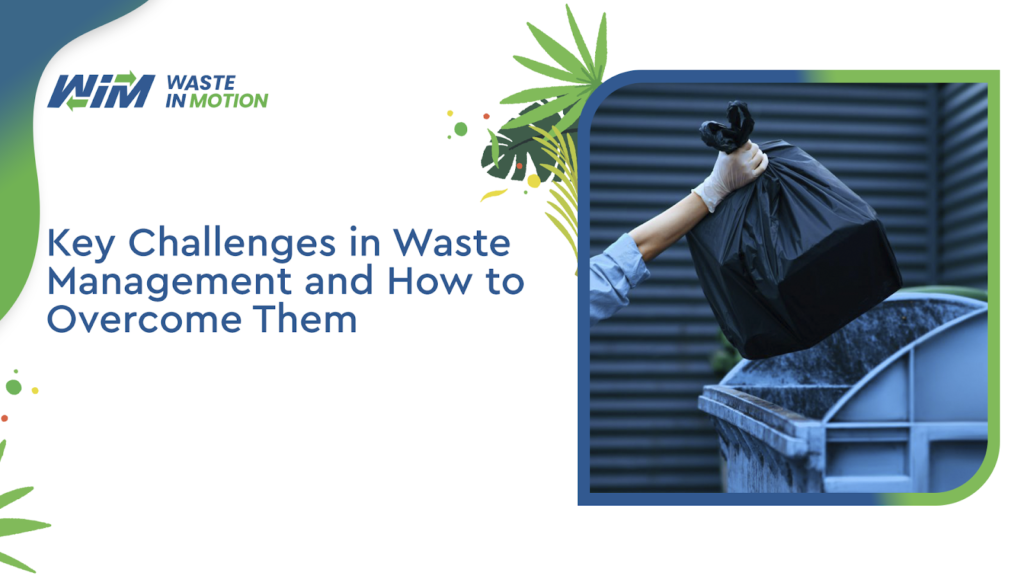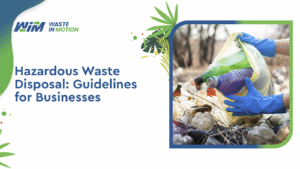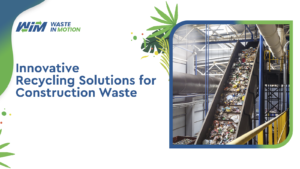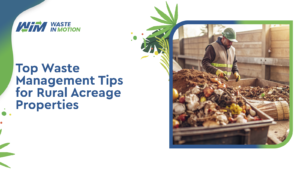Table of Contents
ToggleThe Urgent Need for Smarter Waste Solutions
Proper waste management is essential for maintaining environmental sustainability, public health, and economic stability. Without structured waste management best practices, cities face pollution, resource depletion, and health hazards. Poor waste disposal can lead to severe environmental consequences, affecting air, water, and soil quality. Understanding the importance of effective waste management is the first step toward a cleaner future.
The Biggest Waste Management Roadblocks We Face
Landfills Are Overflowing – Where Will the Waste Go?
One of the biggest waste disposal issues is the overuse of landfills. Many urban areas are running out of space for waste, leading to landfill overflow. The excess waste contributes to soil contamination, methane emissions, and water pollution. Implementing waste diversion strategies such as composting and recycling can help mitigate this problem.
Why Recycling Isn’t Working as It Should
Recycling barriers include a lack of proper sorting, contamination of recyclables, and public reluctance to participate. Many recycling programs struggle due to inadequate infrastructure and limited public awareness. Encouraging community engagement and offering incentives for responsible waste disposal can enhance recycling rates. Learn more about how waste management helps reduce pollution.
The Dangers of Mishandling Hazardous Waste
Handling hazardous waste requires strict regulatory compliance in waste management to prevent environmental and health risks. Industries producing chemical, medical, and electronic waste must follow proper disposal guidelines to avoid pollution and legal consequences.
The Hidden Struggles of Waste Collection and Transport
Waste collection inefficiencies arise due to outdated collection systems, high transportation costs, and urban waste management complexities. Adopting smart waste collection solutions, such as automated sorting and GPS-enabled route optimization, can significantly improve efficiency.
Game-Changing Solutions for a Cleaner Future
How Technology is Revolutionizing Waste Sorting
New technologies, such as AI-powered waste sorting and automated recycling systems, are improving waste separation efficiency. These innovations help reduce contamination in recycling streams, making the process more effective.
Building a Culture of Recycling Through Community Action
Public participation is crucial in overcoming recycling barriers. Cities that implement educational programs and reward-based initiatives see a significant improvement in recycling habits. Businesses can also benefit from efficient waste disposal practices, reducing operational costs and enhancing sustainability efforts.
The Role of Governments in Waste Reform
Governments play a pivotal role in enforcing sustainable waste solutions. By introducing stricter regulations, offering tax incentives for green initiatives, and investing in waste management infrastructure, policymakers can drive positive change in urban waste management.

The Future of Waste Reduction: What Works Best?
Embracing the Circular Economy to Cut Down Waste
A circular economy promotes reusing materials to minimize waste generation. Waste diversion strategies such as repurposing, upcycling, and composting can significantly reduce landfill dependency. Recycling programs are a core component of this approach.
How Businesses Can Lead the Way in Waste Reduction
Companies can adopt waste reduction techniques like sustainable packaging, efficient resource use, and employee training on waste management best practices. Proper waste disposal is also vital for public health, ensuring a safer and cleaner environment for all.
Conclusion
Tackling waste management challenges requires a multi-faceted approach, including technological advancements, policy changes, and community participation. By embracing sustainable waste solutions, businesses, governments, and individuals can work together to create a cleaner, healthier planet.
FAQs
What are the main challenges in waste management?
The key challenges include landfill overflow, inefficient recycling systems, hazardous waste handling, and waste collection inefficiencies.
How can we improve recycling participation rates?
Increasing public awareness, implementing incentive programs, and investing in advanced recycling infrastructure can boost participation.
Why is landfill overflow a serious issue?
Overflowing landfills contribute to soil and water pollution, methane emissions, and loss of land that could be used for other purposes.
How can businesses reduce their waste footprint?
Companies can adopt sustainable packaging, promote recycling programs, and follow waste management best practices.
What role does government policy play in waste management?
Governments enforce regulations, provide incentives for green initiatives, and invest in waste collection and recycling infrastructure.






